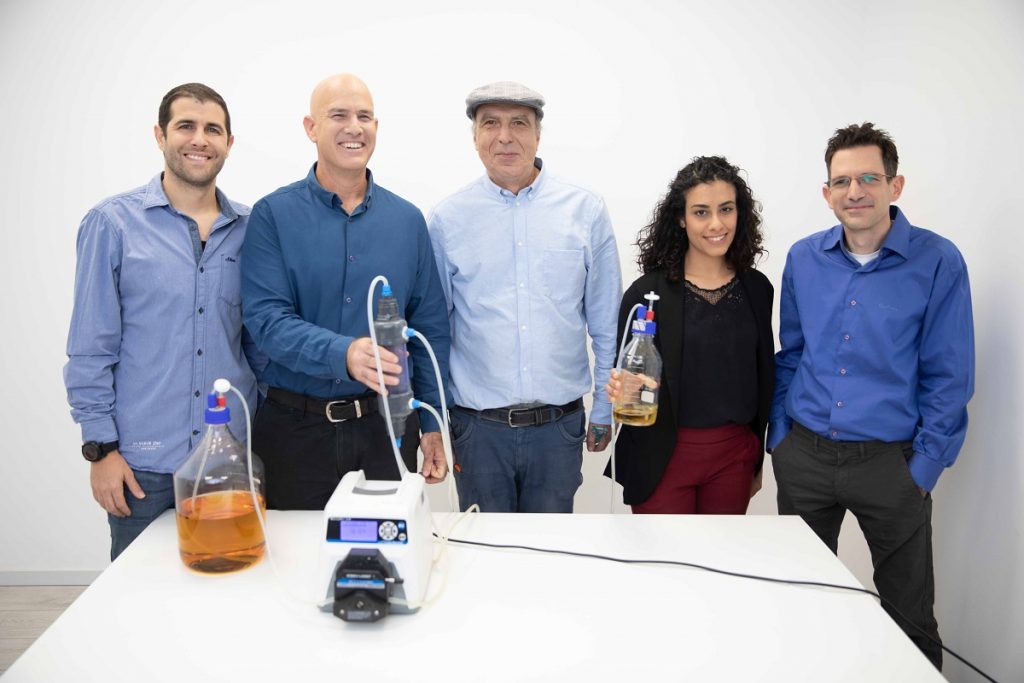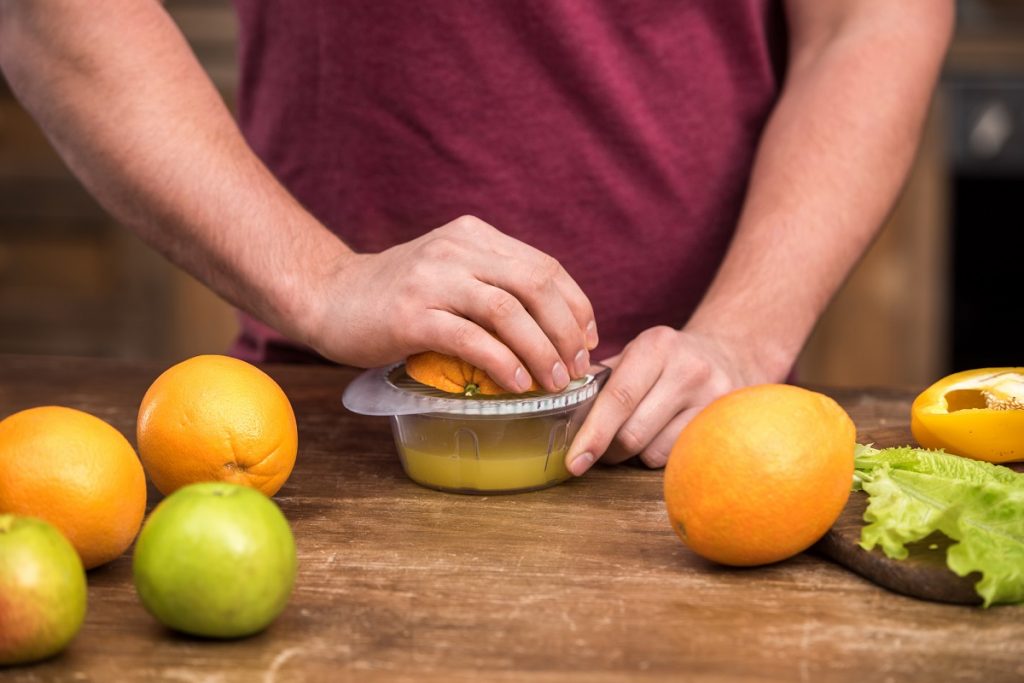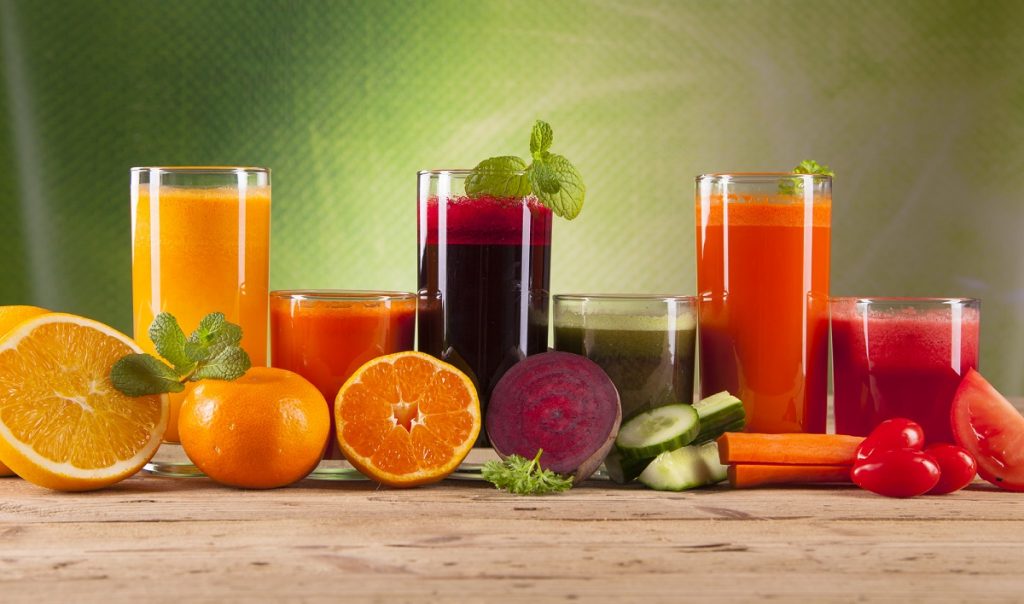Sales in the juice market have dipped sharply over the past decade due to the growing concerns about the levels of sugar and the high calorie count in the beverages. In fact, fruit juice may contain as much sugar and calories as a soft drink, according to a 2014 study in The Lancet, a peer-reviewed general medical journal.
A growing body of research over the years showing a convincing link between sugar consumption and high rates of obesity, type II diabetes, and other health problems, has helped shift consumer behavior as well.
Although fruit juice also contains vitamins and minerals essential for a healthy diet, the problem is the lack of dietary fiber – an essential nutrient that helps delay the absorption of sugar and adds to the feeling of fullness – as an outcome of the juicing process.
SEE ALSO: How Israeli Ingenuity Is Keeping Your Sweet Tooth Healthy
The Israeli startup Better Juice, founded in 2017, sought to address this problem by developing a unique enzymatic technology that reduces the caloric and sugar content of all types of fruit juice while increasing the amount of fiber. To top it off, the company says there is no compromise on taste, texture, or nutritional value.
How it works
The idea began in late 2017 when food industry expert Dr. Eran Blachinsky came upon a scientific article about sugar reduction written by microbiology professor Dr. Roni Shapira from the Hebrew University of Jerusalem. “I thought the idea was great but needed some improvement, so I contacted Dr. Shapira and together we developed the Better Juice technology,” Dr. Blachinsky tells NoCamels.
With the financial sponsorship of The Kitchen FoodTech Hub incubator by Strauss and the backing of The Hebrew University in Rehovot, the Israeli experts developed a method that it says “harnesses a natural enzymatic activity in non-GMO microorganisms to convert a portion of the simple fructose, glucose, and sucrose sugars into fibers and other non-digestible natural sugars.”
“Currently, there is no solution for natural sugary products like juice,” says Dr. Blachinsky, who serves as Better Juice CEO. “There are many other alternatives that are sugar-reduced, but they are synthetic, like Coca Cola or Nestea which add a sugar alternative such as stevia or aspartame.”
The Better Juice process is non-fermentative and does not add or remove ingredients. The specific enzymatic activity changes the molecular structure of monosaccharides (“simple sugars”) and disaccharides (double sugars or bivose).

The Better Juice Team from left to right: R&D Manager Aviv Cohen, Founder and CEO Dr. Eran Blachinsky, Chief Scientific Officer Dr. Roni Shapira, R&D Researcher Rotem Cohen, and R&D Researcher & Lab Manager Dr. Elad Landau. Courtesy
“One by one, the molecules are attached one to another turning into dietary fibers, which are healthy, as opposed to the original building linkages of sucrose,” Dr. Blachinsky explains.
In this way, the sugar in orange juice was reduced from 30 percent to 80 percent and bio-converted to dietary fibers in a number of trials of different beverages, Better Juice said in October. The startup says it has achieved proof-of-concept with orange juice but that the technology applies more widely and to all types of sugar through Better Juice is focused on the juice producer market.
“While the process does slightly reduce the sweetness of the juice,” Dr. Blachinsky said in October, “it actually brings out more of the fruit flavor, making for a better-tasting juice product overall.”
Moreover, it has a minimal impact on the final juice cost, adding only ten cents per liter to the overall price.
“We offer a solution for the decline in the consumption of natural juices globally, which is not only painful for the manufacturers, but also for the people that want to drink juice, but can’t do so because of the sugar levels,” he says.
Better Juice aims to market the technology internationally, with key manufacturers of natural juice in the US, the EU, China, Japan and Brazil among others, as core targets.
Sign up for our free weekly newsletter
Subscribe“Big companies like Coca-Cola and Givaudan [a Swiss manufacturer] are approaching us, we are currently in the due diligence session with them,” Dr. Blachinsky tells NoCamels.
Main challenges
The company currently faces two main challenges. The first entails obtaining the patent certificate in each country where it wants to expand.
The second issue is that, from an EU regulatory perspective, the products that use Better Juice’s technology cannot be labeled “juice” but rather “juice drink.” This is because juice is defined, among other characteristics, by its sugar structure. “There are some enzymatic treatments that are allowed, such as pectinization, but since our enzymatic treatment is new, there is no regulation for it, so we have to have some mileage on the regulatory pathway to prove this as a legal enzymatic treatment for juice,” Dr. Blachinsky says.
“We know it works, now we have to prove it to the rest of the world,” he asserted.

Squeezing orange juice. Deposit Photos
By contrast, in the US and other parts of the world, the product can be labeled as “juice,” but would have to be qualified as “enzymatically treated.” Dr. Blachinsky states this is mainly a marketing issue, which concerns manufacturers and regulators, but has no main impact on the consumers.
“I truly believe our solution is revolutionizing the juice industry,” Dr. Blachinsky said earlier this year. “It’s a game changer for the juice and beverage industry.”
Although a very young company, the startup has achieved some international accomplishments. Last year, Better Juice won the “Most Innovative Technology” award at the Startup Innovation Challenge at Health Ingredients Europe in Frankfurt for its sugar reduction process. Last month, the company won a €50,000 grant from the EU’s Horizon 2020 program.
Israeli startups and companies in the sugar tech field
Better Juice is one of a growing number of Israeli startups and companies developing solutions to reduce sugar intake in recent years.
For example, Israeli biotech company Amai Proteins, founded in 2016, is developing a sugar substitute that gets digested in the upper gastrointestinal tract with zero insulin resistance.
DouxMatok, a startup that developed a patented sugar reduction solution, is another one of these initiatives. Last year, DouxMatok announced a partnership with German company Südzucker, the largest sugar producer in Europe.
Israeli startup Lampados International, meanwhile, developed a dissolving vegetable protein sweetener that looks like a meringue kiss to replace standard powder and tablets in the tabletop sweeteners market.
Unavoo developed Heylo, a product that looks like a regular go-to sugar packet, but instead is made of organic Stevia and natural dietary fibers.
And taking it one step further, A1C Foods is an Israeli outfit that has developed a patent-pending formula to lower the glycemic index of food products to make them low-carb, healthy and without artificial sweeteners.
Related posts

Editors’ & Readers’ Choice: 10 Favorite NoCamels Articles

Forward Facing: What Does The Future Hold For Israeli High-Tech?

Impact Innovation: Israeli Startups That Could Shape Our Future




Facebook comments